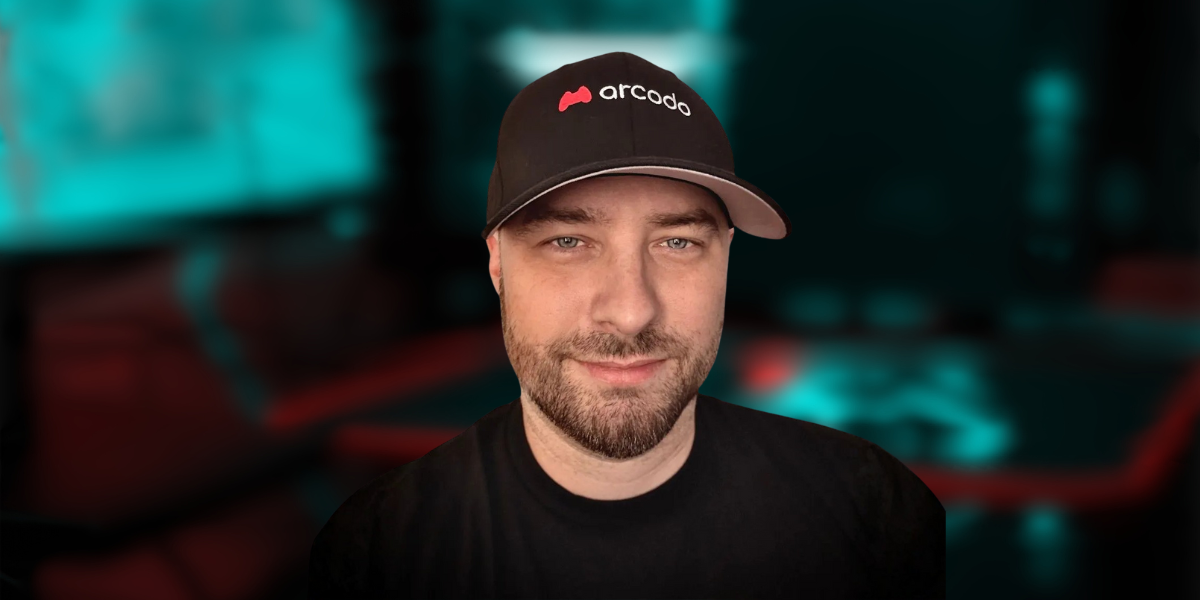How Mike Conway Turned His Passion for Games into a SaaS Success

After years in the corporate grind building someone else’s vision, Mike Conway decided it was time to create something of his own—something with purpose. That vision became Arcodo, a platform designed to support the often chaotic, multidimensional process of indie game development. In this edition of the Wantrepreneur to Entrepreneur Spotlight series, Mike shares how stepping into entrepreneurship allowed him to align passion with impact, build intentionally, and support a vibrant community of creators. From failed starts to strategic patience, his story is a powerful reminder that building what you believe in can lead to both fulfillment and success.
Hi, Mike! Thanks for joining us today. Tell us about your business. Who do you serve, how do you serve them, and what's the impact that your business and work makes?
Arcodo is a platform that helps indie game developers plan, manage, and release their games. The indie game community has really blown up over the past several years. You no longer have to work for a AAA studio to bring a game to life. You can now go download a game engine and self-publish your work. Steam, Itch.io, and other platforms are filled with some pretty amazing works of art that people have created as a labor of love.
Creating a game from scratch is no joke, though. Unlike traditional software development, just writing the code isn't enough. You have to be an artist, an animator, a storyteller, a junior physicist, a composer, and marketing executive if you want to create a successful game.
Traditional project management tools are often built for rigid enterprises and expect everything to fit neatly into nice little buckets. Unfortunately, game development doesn't work that way. It's a messy, artistic process with a lot of moving pieces. Not only that, but it's also like a game of Jenga. Changing one small thing can have massive downstream effects, so keeping track of dependencies between game components is critical.
Arcodo is built from the ground up to help wrangle the chaos and keep track of everything as you expand your vision from a core idea. A little bit of structure goes a long way toward reducing overwhelm and creating something awesome.
Tell us about the moment you finally felt like you went from wantrepreneur to entrepreneur.
I think the key moment was when I started telling people that I was starting a SaaS business. It's one thing to privately work on a project in your free time. It's very different when you put it out there in the world and make yourself accountable to others for delivering. It feels a lot more real once others know it exists.
Describe the moment or period in your life/career that motivated you to make the entrepreneurial leap.
Since I was a child, I've always desired to own my own business. I have a deep-rooted need to feel like what I'm doing matters, and although I've had a lot of success throughout my career, it becomes exhausting when you spend countless hours of your life building someone else's vision. That's especially true when that vision is driven by greed or building shareholder value.
After spending a couple of decades doing the corporate grind, I wanted to step away and do things my way. I wanted to be able to channel my passion and willingness to work hard into something I actually enjoy. Games seemed like a perfect fit.
Video games are both an incredible creative outlet for people who want to bring the worlds in their mind to life. At the same time, they're also an escape for people who want to step away from the pressures of the real world for a while, enjoy themselves, and recharge. If I can help people do that, I'll be very happy.
Describe a tool, service, or software that has been a game-changer for your business. How does it contribute to your success?
This is probably the part where I'm supposed to sing the praises of AI and talk about how transformative it's been for me. While it is certainly useful in a lot of contexts, it's not what got me to this point.
My actual answer is a lot more boring. I live and die by my digital calendar. We are all bound by the same 24-hour-per-day limit, and time is everyone's biggest enemy. Each morning, I sit down, look at what I need to do, and slot those items into my calendar. It's easy to overestimate how much time you have, and seeing the visual representation of just how scarce my time is keeps me focused on the things that are most impactful.
We know that success is very often a non-linear path. Tell us about a failure, pivot point, or lesson that changed your course or direction and helped to get you where you are today.
I have an embarrassingly long list of projects I've attempted to tackle over the years. There have been so many times that I've started down a path with great excitement, only to realize later on that it was a bad idea. It's definitely deflating when you realize that the bright, happy vision of a successful business that you conjured in your head isn't destined for reality.
I think the lesson that I gleaned from these failures was to be patient and wait for the right idea to come. I wanted so badly to start my own company that I'd often rush into ideas that were half-baked, or centered around something I wasn't super passionate about. You're going to spend a *lot* of time with your business, so it needs to be something you love, as well as something you can stand behind when the world tries to discourage you. No one is ever going to care about your business as much as you do, so you need to make sure it's something you care about a lot.
What unconventional strategy did you employ that significantly impacted your business?
We all have our own reasons and goals for starting a business. For many I've talked to, it's to make ridiculous amounts of money. I've powered through so many conversations where people have inundated me with fundraising strategies, names of venture capitalists, and tax code acrobatics.
For me, the reward of having my own business is the ability to pour my passion and energy into something I truly care about, rather than working for some corporation that would replace me in a week if I left. If the money comes, that's just the icing on the cake, but the real prize for me is being able to take pride in something I created myself.
Being able to step back a bit has enabled me to do things the right way from the get-go. Rather than slapping something together that is unmaintainable, I've spent time building quality infrastructure, automation, and testing tools. These are things that you often don't have time to go back and do once your product is live and you're trying to keep up with customer demand. Spending a little extra time to lay a solid foundation has paid dividends in that I'm now able to create and deploy features much more quickly and easily that I would have been able to do otherwise.
What’s something you wish you knew sooner that you’d give as advice for aspiring or newer entrepreneurs?
Truthfully, the bar is lower than you think. Working in the technology industry, there have been so many times that I've seen some really ugly products that bring in tons of revenue for their companies. I sometimes joke that, "It's amazing what people will pay money for." It's easy to get discouraged when you compare yourself to some of the giants who have been in the game for years. But in reality, a lot of people don't care what a product looks like or how many extra features it has. If you're truly solving a problem for a given market, you can have a successful business.
All of the giants had to start right where you are at one time. The sooner you have a little faith in yourself and start on your own journey, the further along you'll be toward building something great.
Want to dive deeper into Mike's work? Check out the links below!
- Visit Arcodo 's website: arcodo.com
- Get to know more about Arcodo: Arcodo Community
- Join Arcodo Community in Discord.
- Follow Arcodo at Bluesky: @arcodo.com
- Follow Arcodo on Facebook: Arcodo
- Follow Arcodo on LinkedIn: Arcodo





